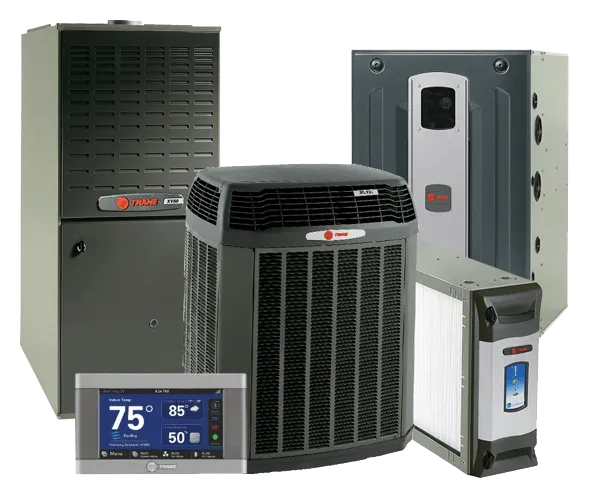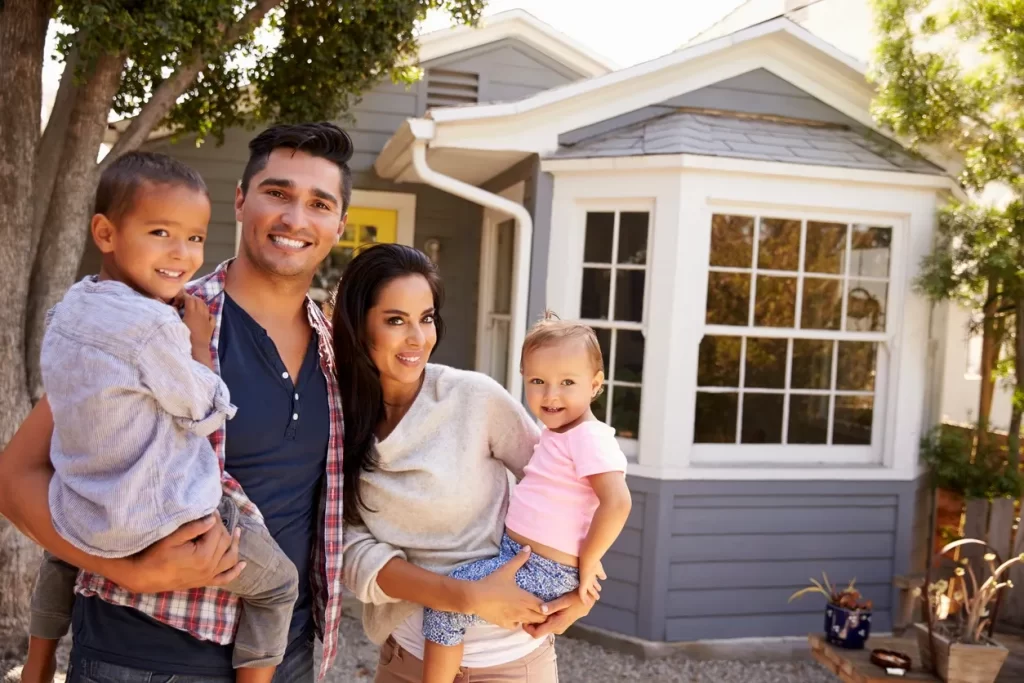We know that when buying a new home you can sometimes become overwhelmed with questions about how well the previous owner took care of the property. Your homes HVAC system is the largest, and typically the most expensive appliance you will be taking ownership of. So you will definitely want to ask all the right questions about the heating and cooling system in your potential new home. We have gathered up some of the most critical questions to ask during this process to help you make the right decision on your new home.
How old is the system?
Most systems in our region have a lifespan of 10-12 years, we run our a/c units a lot in the Houston area! There are a few factors that impact the years of life an a/c system will have. Maintenance is a huge factor, which we cover later in this article. Some other factors are: manufacturer, run times of system and quality of installation, we’ll cover these three now.
Manufacturer, I have visited numerous manufacturer facilities and have seen first hand what makes one product better than others, to put it bluntly, some are simply put together better than others.
Run times of system, if the previous homeowner used this home as a weekend getaway and set the thermostat higher while not there, you can imagine that the HVAC system will last longer than a full time resident keeping the thermostat at 68 degrees all summer.
Quality of installation, the most important day in any air conditioning systems life is the day it gets installed. Many contractors compete for one thing and one thing alone, being the cheapest price. This means corners HAVE to be cut, problems get overlooked, there is no quality control measures and the product delivered to the homeowner is sub-par. As you can see, there are plenty of reasons to ask about the age of your HVAC system, and maybe some serious concerns if you find that the system is more than 12 years old.
What type of system is in the home?
When it come to residential HVAC systems, there are 3 main types of systems. Heat pumps, electric strip heat units and gas furnaces. One important point to note: All three types of systems generally cool your home in the same way, it’s how they heat your home that is different. Let’s talk about the differences.
Heat Pumps – Heat pumps are what we would consider the middle of the road in terms of heating efficiency. A heat pump heats your home by reversing the flow of refrigerant, thus making your indoor coil hot and your outdoor coil cold. Heat pumps are 3x more efficient than electric strip heat units.
Electric strip heat units – Electric strip heat units are the least efficient type systems to heat your home. They consist only of metal coils that become energized until they glow red and we blow air across that to heat the space. Much like a toaster, we just add the fan!
Gas furnaces – A gas furnace utilizes your homes natural gas(these can be converted to propane) to heat your home. Inside the furnace, we ignite the gas, these flames heat a “heat exchanger” insides the furnace, then we blow air around the outside of the heat exchanger, while exhausting the flue gases to heat your home. In our region, this is the most efficient way to heat your home. It is also the most critical to have closely inspected on an annual basis.

If the system has been replaced since construction, was the ductwork replaced with it?
The ductwork that carries the air throughout your home is one of the most overlooked yet most critical parts of your entire HVAC system makeup. It is not uncommon for a contractor to replace the heating and cooling portion of an HVAC system and not address any of the ductwork issues. This is a problem that can the most efficient new a/c unit and decrease it’s efficiency to a lower rating, thus causing more wasted energy costs. If the ductwork looks anything like it does in this picture, we would highly recommend having it closely inspected during your home buying process. You may also want to ask if the previous homeowner ever maintained their ducts by having them cleaned.
Is there any warranty left on the HVAC system?
Most manufacturers give their HVAC equipment an “out-of-the-box” 5 year warranty. Typically, it is up to the installing contractor to register the system to ensure the parts warranty is extended to 10 years. Unfortunately, it is very common for a contractor to skip this step, thus robbing the homeowner out of 5 years worth of parts warranty. Also, there are “aftermarket” labor warranties available for new a/c units, this is something you should ask about as well, there may be a small transfer of warranty processing fee attached, but that will cost next to nothing when compared to the $1,000’s it could save you in the long term.
Did the previous homeowner have annual a/c maintenance performed and is it documented?
Think about this, would you put 100,000 miles on your vehicle and never have it maintained? If you’re like most vehicle owners, you answer is “NO WAY!” Many people treat their HVAC system like a car with no maintenance at 100,000 miles. In our climate, with our cooling hours, the typical residential HVAC system can cycle up to 10,000 times per cooling season, that is a lot of wear and tear. Annual maintenance will accomplish three things for your system, it will increase the LONGEVITY, it will increase the SAFETY, and it will increase the EFFICIENCY! Having a licensed contractor who is willing to put your maintenance records in writing is critical, yes, there are contractors out there who choose not to perform residential a/c maintenance and when they do, they don’t document it. So, you’re going to want to ask to see the maintenance records for the HVAC system during the process.

